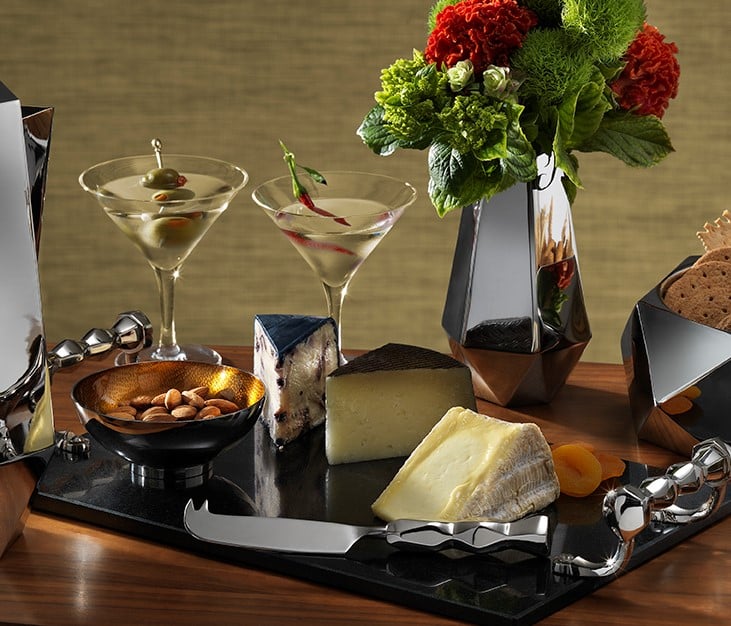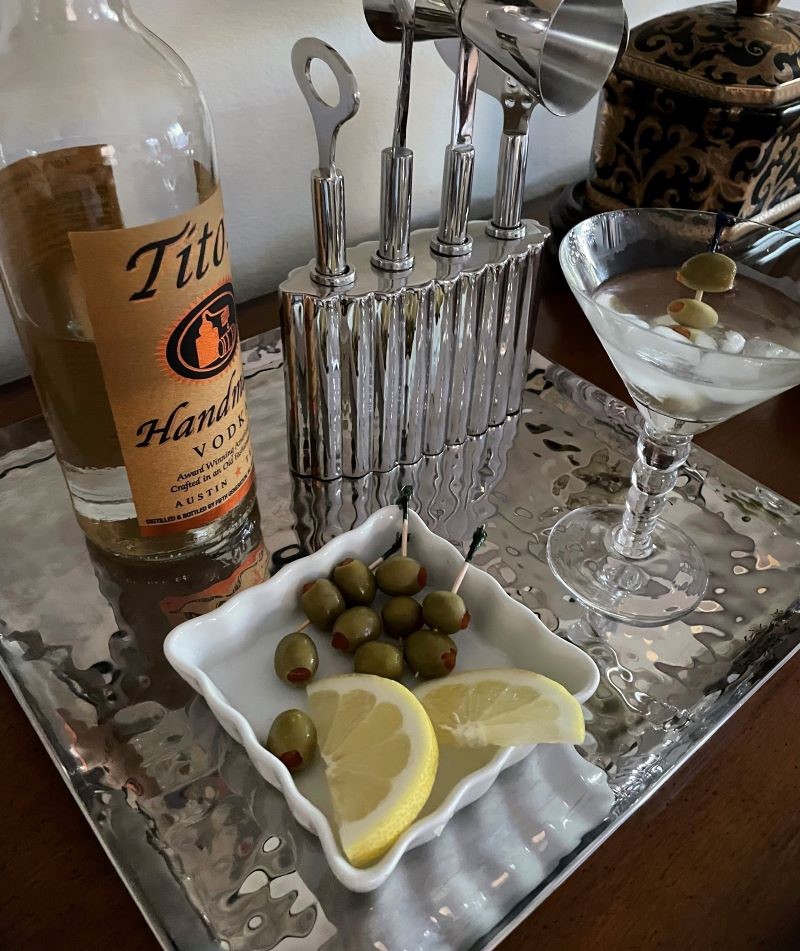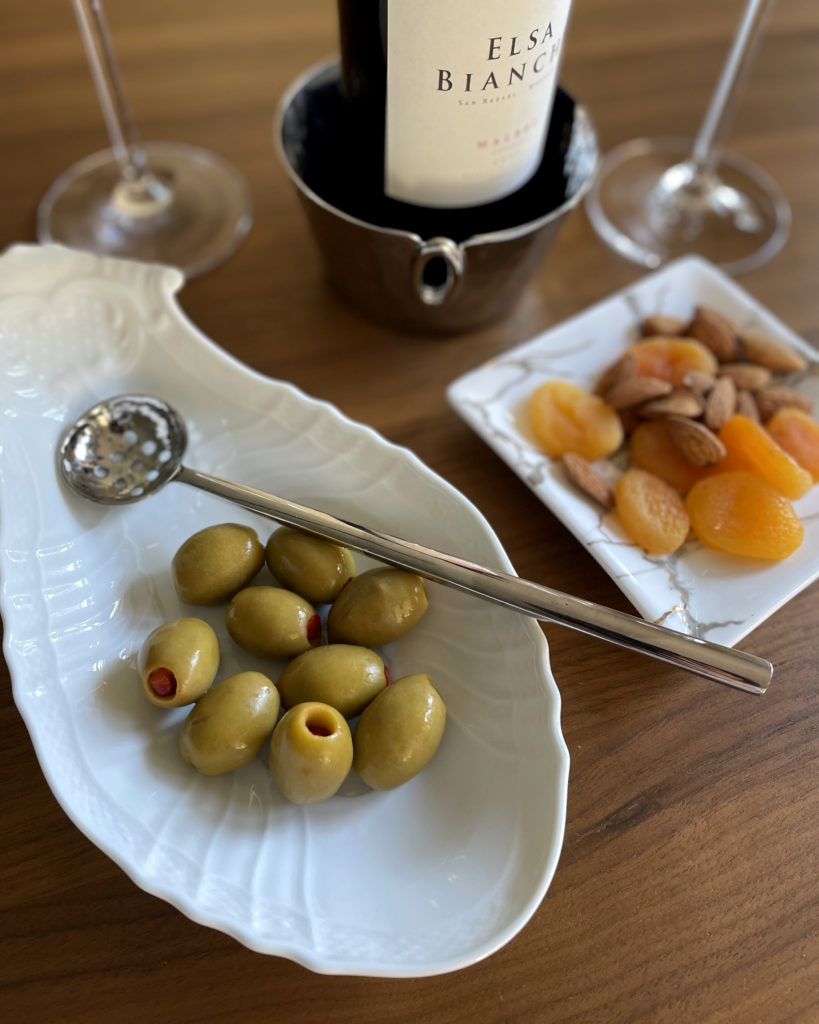The classic martini is one of the most famous cocktails in history, and for good reason. It’s
elegant, it’s refined—if you have a taste for spirit-forward cocktails, it’s downright delicious. Whether you’re a seasoned martini drinker or just testing the waters of this bright, herbaceous cocktail, you’ll want to know how to mix one properly. Adding this classic crowd-pleaser to your repertoire will make you feel as though you’ve joined the ranks of history’s most legendary martini lovers, like Ernest Hemingway and Dorothy Parker. Plus, you’ll be guaranteed to impress your guests next time you host cocktail hour.
As one of the oldest cocktail recipes in the book, the martini has been delighting its drinkers for over a century and, as is the case with any recipe that stands the test of time, it has seen countless variations. Martini drinkers tend to be highly opinionated about the best way to serve this time-honored concoction. Luckily, the classic recipe is oh-so-simple and easily mixed in any home bar. And after you’ve got it down, it’s easy to add your own personal twist (no pun intended).
Gin or Vodka?
Because the original recipe calls for gin, some purists insist on its use in a martini. Other martini devotees prefer vodka for its clean, neutral taste. The choice is yours, but if you plan on serving a group of guests, I recommend having both on hand.
Wet or Dry?
Aren’t all martinis wet? It’s a fair question. In the case of this classic cocktail, its wetness refers to how much dry vermouth is used in its making. A “wet” martini will use slightly more vermouth than the classic recipe; a “dry” martini will use hardly any vermouth at all. If a guest doesn’t specify, or if you’re unsure of which you prefer, start with the standard amount: ½ ounce.
Shaken or Stirred?
Sorry, James Bond. According to the pros, any cocktail containing only distilled spirits, like the martini, should be stirred. This technique chills the cocktail while preserving its full flavor and delicate, silky texture that shaking would obscure. Now, if you’re making your martini dirty by adding olive juice, shake away.
Olive or Twist?
No martini is complete without a garnish. When it comes to choosing between a green olive or lemon twist, it’s all about personal taste. An olive will add a touch of brininess, while a twist will raise bright citrus notes. Feel free to substitute with a cocktail onion—though this would technically transform your martini into a Gibson. When entertaining guests, I like to serve a pitcher of martinis alongside a serving tray, like this mesa square tray, stocked with all of the above.
Don’t Forget to Prep
Before mixing any cocktail, it’s best to have everything you’ll need at hand so your spirits don’t dilute while you search for a tool or ingredient. If you’re looking to finesse your hosting skills, consider creating a home bar area. This is will ensure you’re always prepared to whip up drinks for a guest while offering dedicated space to display serving essentials like glassware, barware, and bottles of your favorite spirits. I like to use a bar toolset that’s functional and also looks great on display, like this one. Made of stainless steel, it’ll stand the test of time. Bonus: it’s dishwasher safe.
Ready, Set, Mix.
Now that you’re basically an expert on all things martinis, it’s time to start mixing. Gather your gin or vodka, dry vermouth, ice, glasses, garnishes, and bar toolset, then get started.
The key to a perfect martini lies in its temperature. For a smooth, balanced martini that’s refreshing and easy to drink, you’ll want to start with a chilled glass. Place your martini glass in the freezer ahead of time or, if you’re low on prep time or freezer space, fill the glass with ice to chill while you mix your cocktail.
Grab a mixing glass, cocktail shaker, or if you want to mix multiple martinis, a stirring pitcher. Using the larger side of a jigger, measure out 2 ½ ounces of gin or vodka and pour into the glass or shaker. Flip your jigger to the smaller side and measure out ½ ounce of dry vermouth, then combine.
Add a generous scoop of ice to your cocktail shaker or stirring glass, then dip your bar spoon in and stir for 30 seconds. When it comes to stirring a cocktail, gentleness is key. Hold the spoon as you would a pencil, then loosen your grip and weave the spoon between your middle and ring fingers to rotate it around the edge of the glass, creating a whirlpool effect. This is a skill that takes practice, so don’t be discouraged if you don’t get it right the first time.
After stirring for 30 seconds, your glass or shaker should be cold and frosty. Remove your bar spoon and place the strainer on top of the glass or shaker, holding it secure. Strain over your martini glass, finish with your choice of garnish, and serve.





